news
Update: Energy crisis: Petrol scarcity to persist
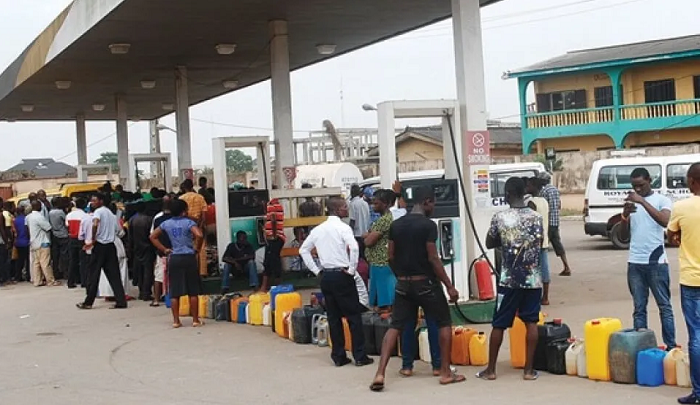
 ….Petrol subsidy could hit N6trn by end of year, IMF warns
….Petrol subsidy could hit N6trn by end of year, IMF warns
…PENGASSAN cites bridging cost, says high diesel price affecting trucking of petrol by tankers
…Adds sole importation, inadequate funds, others can’t guarantee supply
…As MOMAN canvasses full downstream deregulation, says inadequate supply responsible for scarcity
Indications emerged yesterday that the ongoing fuel scarcity in the country may not abate soon, as major stakeholders in the sector are currently expressing divergent views as to the cause(s) of the crisis.
While the Petroleum and Natural Gas Senior Staff Association of Nigeria, PENGASSAN, said there is sufficient stock of the product to serve the nation for some weeks, which seemed to be the position of the Nigerian National Petroleum Corporation Limited, another major stakeholder, the Major Oil Marketers Association of Nigeria, MOMAN, said the product available is inadequate to serve the nation, noting that the shortage was fueled by fundamental issues and problems in the sector.
PENGASSAN blamed the current scarcity on difference in the bridging gap cost between when the cost of diesel was N250 per litre and now that it had risen to as much as N820.
Speaking at an electronic medium monitored in Lagos yesterday, President of PENGASSAN, Mr. Festus Osifo, said: “Nigerian Midstream and Downstream Petroleum Regulatory Authority, NMDPRA and truck drivers are the ones administering the bridging fund.
“At a particular time, they agreed with truck drivers that the bridging fund is going to be about N10 per litre, depending on the destination you are going to all over the country.
“As at when they agreed, the cost of diesel was about N250, so it was fashionable and the N10 was okay, but today, the cost of diesel is over N700. It has tripled.
“So, the expectations from the tanker drivers is that since the cost has gone up, instead of paying N10.40 kobo as the case may be, you have to multiply it by three. This is a major problem. As at today, we have close to two billion litres of PMS, so the problem is not the stock.’’
He explained that while the stock is available, most truck drivers are not willing to move these products, “because of the previous problem I just enumerated.
“One of the issues again is that today, NNPC is the sole importer of PMS, so they import PMS into the country, and this PMS is brought to the high sea, so they rent some smaller vessels to bunker the PMS and take to the various tank farms or depots.
“So, if it’s the NNPC depots and you are loading from the NNPC depots, you are going to pay about N148 as the ex-depot price. But some of the PMS are also stored in private depots and those private depots don’t sell to retailers for N148; they add some premium to it. At the end of the day, they sell between N152, N155, N160 and N162.”
Inadequate supply, other challenges abound — MOMAN
Countering this at a virtual meeting monitored yesterday in Lagos, the Chairman of MOMAN, Mr. Olumide Adeosun and the Chief Executive Officer, MOMAN, Mr. Clement Isong, jointly observed that the current scarcity of petrol was occasioned by supply inadequacy in the last few weeks, which was worsened by the scarcity and rising price of Automotive Gas Oil (diesel), which tanker drivers depend on to move petrol from the depots to the filling stations.
They said: “MOMAN, as an association, fears that the current supply framework cannot guarantee steady and consistent supplies to the country, given the current state of government finances and unpredictable international supply shortages.”
Full downstream deregulation is key
The duo, who canvassed deregulation, said: “We recommend a gradual price deregulation with targeted palliatives (e.g. transport and agricultural subsidies) to the public to ease implementation.
“However, in the interim, MOMAN recommends that the current single supplier strategy be reviewed. The Federal Ministry of Petroleum Resources, in collaboration with the Ministry of Finance and other relevant MDAs, should set up a task force to immediately focus on increasing diesel supply through accelerated initiatives to increase local modular refining capacity. This move will tackle the supply and distribution challenges.
“There should be phased rehabilitation of existing NNPC refineries to hasten supply of middle distillates (AGO & ATK). MOMAN recognizes and closely associates with the need to ease challenges, with respect to high energy and transportation costs occasioned by extraneous circumstances.
“MOMAN shall continually do its best to distribute petrol to its customers across the country and keep exploring opportunities to partner with industry stakeholders, The Authority and the government should ensure the sustainability and institutionalization of a viable petroleum downstream sector in Nigeria.
“The full deregulation of the petroleum downstream sector and full implementation of the Petroleum Industry Act (PIA) 2021 clearly remains the most viable long-term solution to the country’s supply and distribution challenges.”
Ukraine-Russian war factor
In any case, an investigation by Vanguard indicated that the outbreak of the Ukraine – Russian war and ban on Russian oil and gas, have culminated in scarcity and rising prices globally.
Consequently, Nigeria remains one of the most affected nations because of its over-dependence on imported petroleum products at the expense of the nation’s scarce foreign exchange, thus over-stretching the capacity of government to import.
Legislators postpone dialogue with stakeholders
Meanwhile, the House of Representatives yesterday postponed its meeting with the major stakeholders in the downstream sector from yesterday to Friday this week, following the taking of permission and absent of major stakeholders.
However, the meeting was targeted at finding lasting solution to the nation’s prolonged energy crisis.
Specifically, those expected at the public hearing include the Nigerian National Petroleum Corporation (NNPC) Company limited represented by the GMD, Mr. Mele Kyari, the Minister of State for Petroleum, Timipre Sylva, the Chief Executive Officer of the NMDPRA, the Managing Director of the Nigerian Gas Company (NGC) and that of the Nigerian Gas Marketing Company (NGMC), two subsidiaries of NNPC Limited and others.
The lawmakers had in a letter signed by the Chairman of the Joint Committee on Petroleum Resources (Downstream) Hon. Mahmud Gaya, invited the heads of the organisations for the hearing.
But addressing the House, the Chairman of the joint committee, Gaya said he received communication from the GMD and the minister who said they would not be able to make it because they were also in another meeting at the time.
Long fuel queues, other woes remain
However, the queues remained visible at many filling stations across the nation, yesterday, due to lack of adequate supply.
Transporters, who managed to get supply at the prevailing black market price, ranging from N200 to N300, increased fares to cover cost.
This, it was gathered, has already culminated in the general increase in the prices of basic services and goods, including commodities, a development worsened by epileptic power supply and high prices of cooking gas as well as aviation fuel.
news
Update : FG confirms continuation of crude, refined product sales in Naira initiative, Says Wale Edu
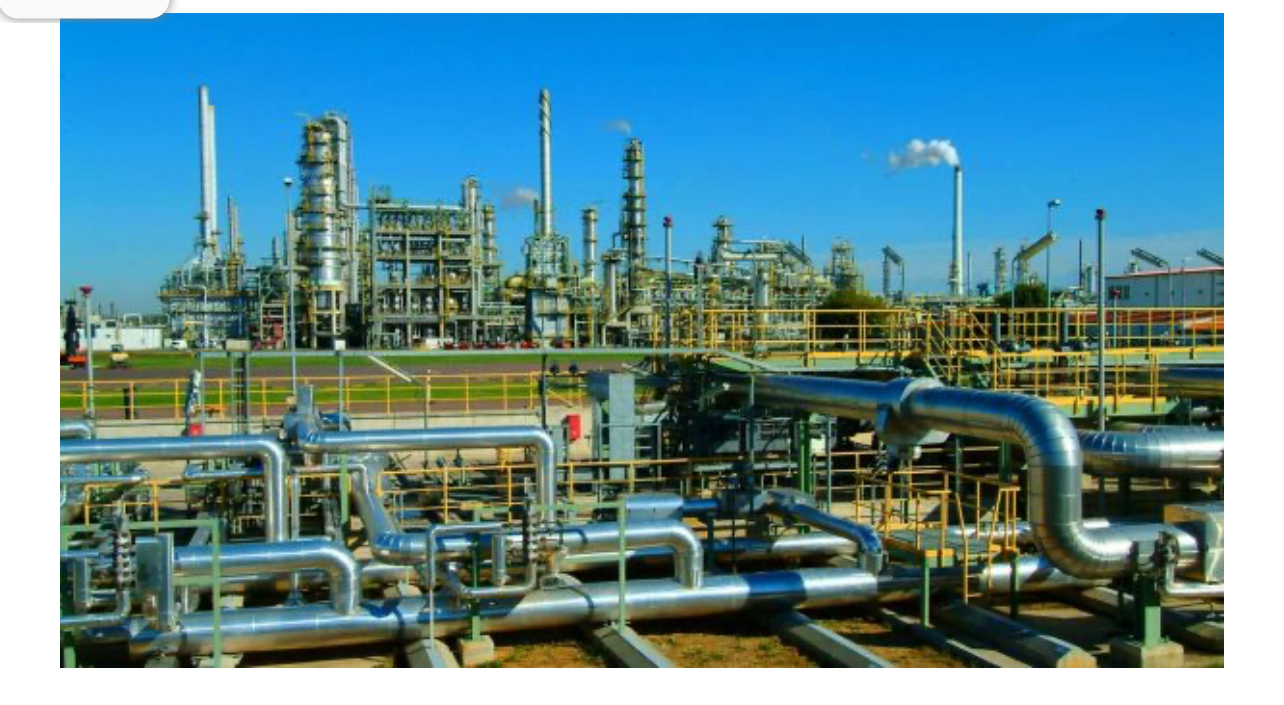
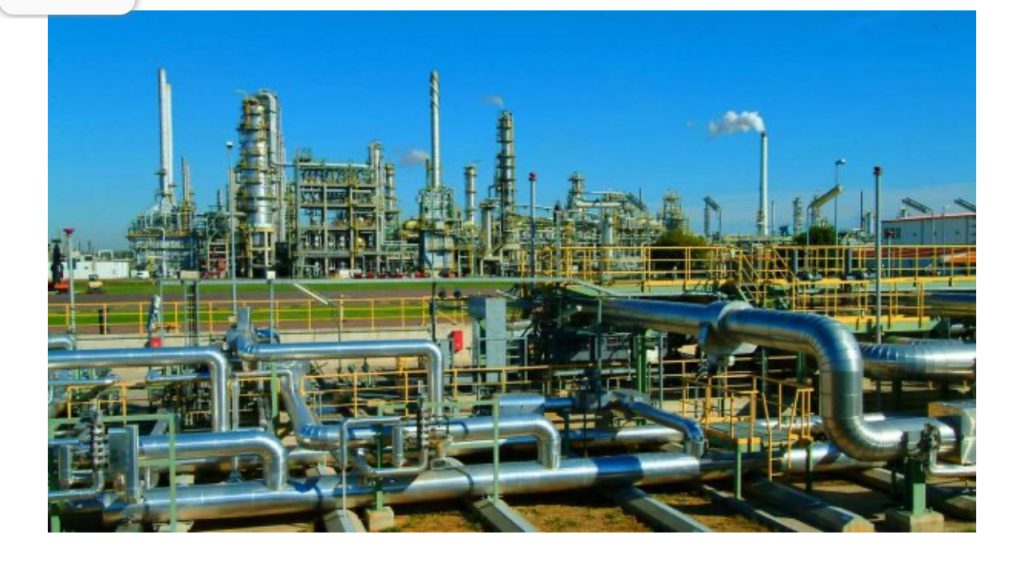 The Federal Government has confirmed the crude and refined product sales in Naira initiative remains a standing national policy and will continue indefinitely.
The Federal Government has confirmed the crude and refined product sales in Naira initiative remains a standing national policy and will continue indefinitely.
However, the policy will stay in place as long as it serves the public interest and supports Nigeria’s broader economic goals.
This assurance was contained in the official X (formerly Twitter) handle of the Federal Ministry of Finance on Wednesday morning amid growing inquiries on the status of the policy.
The Ministry stated the initiative, first approved by the Federal Executive Council (FEC), is a long-term strategic directive and not a short-term or provisional measure.
According to the Ministry, stakeholders have reconvened to reiterate their full support and ongoing commitment to ensuring the successful implementation of the initiative.
The policy, which mandates the transaction of crude oil and refined petroleum products in Naira, is aimed at strengthening the country’s economic sovereignty, enhancing local refining capacity, and stabilizing the foreign exchange market by reducing the demand for dollars in domestic petroleum transactions.
The Ministry explained that this policy is structured to foster energy security and encourage investment in domestic refining infrastructure.
“The Crude and Refined Product Sales in Naira initiative is not a temporary or time-bound intervention, but a key policy directive designed to support sustainable local refining, bolster energy security, and reduce reliance on foreign exchange in the domestic petroleum market,” the statement reads.
While acknowledging that the transition involves complexities, the government admitted that existing challenges are being systematically addressed.
“As with any major policy shift, the Committee acknowledges that implementation challenges may arise from time to time. However, such issues are being actively addressed through coordinated efforts among all parties,” the Ministry said.
To assess the progress made and address lingering implementation issues, the Technical Sub-Committee on the Crude and Refined Product Sales in Naira initiative held a review meeting on Tuesday. The gathering brought together key figures involved in the execution of the policy.
Among the attendees were the Minister of Finance and Coordinating Minister of the Economy, Mr. Wale Edun, who chairs the Implementation Committee; and the Executive Chairman of the Federal Inland Revenue Service (FIRS), Mr. Zacch Adedeji, who heads the Technical Sub-Committee.
Also present were the Chief Financial Officer of NNPC Limited, Mr. Dapo Segun; the Coordinator of NNPC Refineries; Management of NNPC Trading; representatives from the Dangote Petroleum Refinery and Petrochemicals; and senior officials from the Nigerian Upstream Petroleum Regulatory Commission (NUPRC), the Nigerian Midstream and Downstream Petroleum Regulatory Authority (NMDPRA), the Central Bank of Nigeria (CBN), and the Nigerian Ports Authority (NPA). A representative from Afreximbank and the Secretary of the Committee, Hauwa Ibrahim, also attended.
This policy, which aligns with the government’s broader economic reform agenda, is expected to support local content development, ease pressure on Nigeria’s foreign reserves, and provide a more predictable pricing structure for refined petroleum products in the domestic market.
The presence of major players from both the public and private sectors at the meeting shows the scale of collaboration required to sustain the policy. It also reflects the growing confidence in Nigeria’s shift toward economic policies that prioritize local capacity and currency resilience.
news
Breaking : TInubu appoints Bashir Ojulari as new CEO group of NNPC and GMD mele kyari get sacked, Says Onanuga
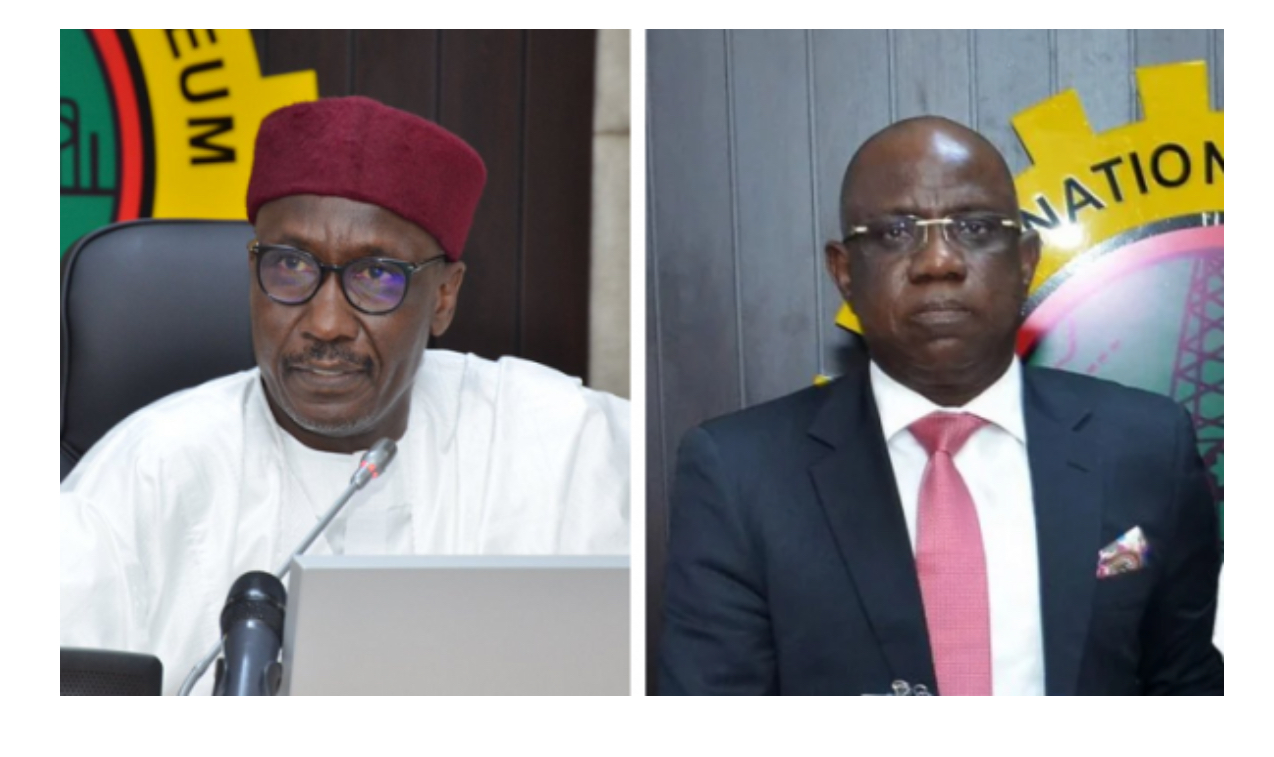
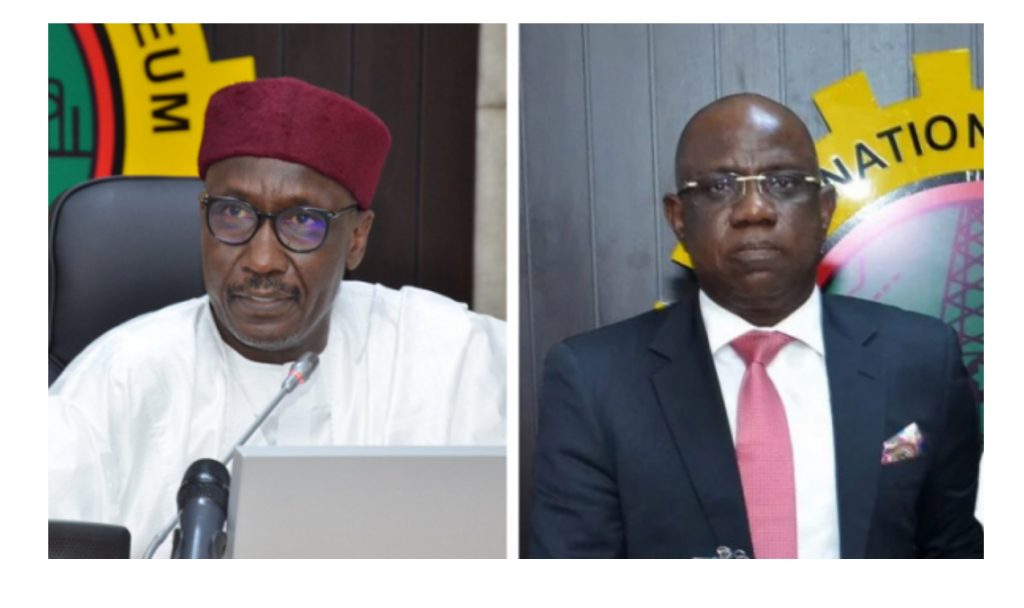 President Bola Tinubu has sacked the board of the Nigerian National Petroleum Company (NNPC) including its Group Chief Executive Officer, Mele Kyari and board chairman Pius Akinyelure.
President Bola Tinubu has sacked the board of the Nigerian National Petroleum Company (NNPC) including its Group Chief Executive Officer, Mele Kyari and board chairman Pius Akinyelure.
The decision, effective April 2, 2025, was announced in a statement by presidential spokesperson Bayo Onanuga.
President Tinubu cited the need for enhanced operational efficiency, restored investor confidence, and a more commercially viable NNPC as the driving forces behind the decision.
Invoking his powers under Section 59(2) of the Petroleum Industry Act (PIA) 2021, he reconstituted the board with new leadership aimed at repositioning NNPC Limited for greater productivity and alignment with global best practices.
Kyari was first appointed NNPC chief by former President Muhammadu Buhari but was reappointed in 2023 by President Tinubu.
As part of the overhaul, Bayo Ojulari takes over from Kyari as the new group CEO, while Ahmadu Musa Kida has been appointed as NNPC’s new non-executive chairman, replacing Pius Akinyelure. Also, Adedapo Segun has been confirmed as the company’s chief financial officer (CFO).
In line with the PIA, the president also appointed six non-executive directors from each geopolitical zone.
They include Bello Rabiu representing the north-west, Yusuf Usman from the north-east, and Babs Omotowa, a former managing director of the Nigerian Liquefied Natural Gas (NLNG), for the north-central.
Others are Austin Avuru for the south-south, David Ige for the south-west, and Henry Obih for the south-east.
Meanwhile, Lydia Shehu Jafiya, the permanent secretary of the federal ministry of finance, and Aminu Said Ahmed of the ministry of petroleum resources will represent their respective ministries on the new board.
“This restructuring is aimed at repositioning NNPC Limited for greater productivity and efficiency in line with global best practices. We are taking bold steps to transform the company into a more commercially driven and transparent entity,” the statement reads.
The changes take effect immediately, and the new board has been handed a strategic action plan, which includes a “review of NNPC-operated and Joint Venture Assets to ensure alignment with value maximisation objectives”.
news
Tinubu commended Nandap for her leadership, extends Comptroller-General tenure till 2026, says Onanuga

 President Bola Tinubu has approved the extension of the tenure of the Comptroller-General of the Nigeria Immigration Service, Kemi Nandap, until December 31, 2026.
President Bola Tinubu has approved the extension of the tenure of the Comptroller-General of the Nigeria Immigration Service, Kemi Nandap, until December 31, 2026.
Nandap, who joined the NIS on October 9, 1989, was appointed as Comptroller-General on March 1, 2024, with an initial tenure set to end on August 31, 2025.
A statement by the president’s Special Adviser on Information and Strategy, Bayo Onanuga, on Monday, said for her leadership, noting improvements in border management, immigration modernisation, and national security under her watch.
“Under her leadership, the Nigeria Immigration Service has witnessed significant advancements in its core mandate, with notable improvements in border management, modernisation of immigration processes and national security measures.
“President Tinubu commended the Comptroller-General for her exemplary leadership and urged her to continue dedicating herself to the Service’s strategic priorities, which align with his administration’s Renewed Hope Agenda,” the statement read.
He also reaffirmed his commitment to supporting the NIS in safeguarding Nigeria’s borders and ensuring safe and legal migration.
-

 news4 years ago
news4 years agoUPDATE: #ENDSARS: CCTV footage of Lekki shootings intact – Says Sanwo – Olu
-

 news1 year ago
news1 year agoEnvironmental Pollutions : OGONI COMMUNITY CRIES OUT, THREATENS TO SHUT DOWN FIRSTBANK,SHELL OIL COMPANY OPERATIONS FOR NOT PAYING COURT AWARD
-
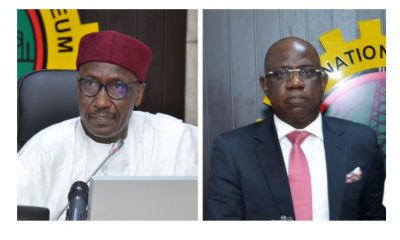
 news1 week ago
news1 week agoBreaking : TInubu appoints Bashir Ojulari as new CEO group of NNPC and GMD mele kyari get sacked, Says Onanuga
-
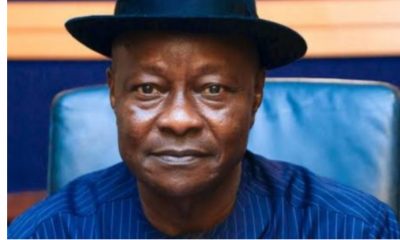
 news2 weeks ago
news2 weeks agoUpdate : Fubara ordered bombing of Rivers Assembly, I am not under duress I resigned, Says ex-Rivers HoS Nwaeke
-
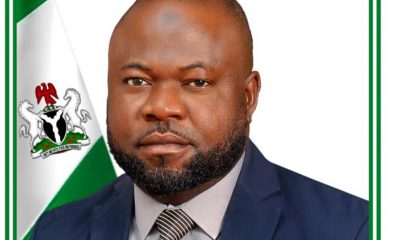
 interview2 weeks ago
interview2 weeks agoNIGERIA MECHANIZED AGRO EXTENSION SERVICE PROJECT, A STRATEGIC MOVE TO ALLEVIATE POVERTY – DR. AMINU ABDULKADIR
-

 news2 weeks ago
news2 weeks agoTinubu commended Nandap for her leadership, extends Comptroller-General tenure till 2026, says Onanuga
-

 brand2 weeks ago
brand2 weeks agoGTCO Plc Releases 2024 Full Year Audited Results …Pays Shareholders Record Dividend of N8.03k for 2024 Financial Year
-
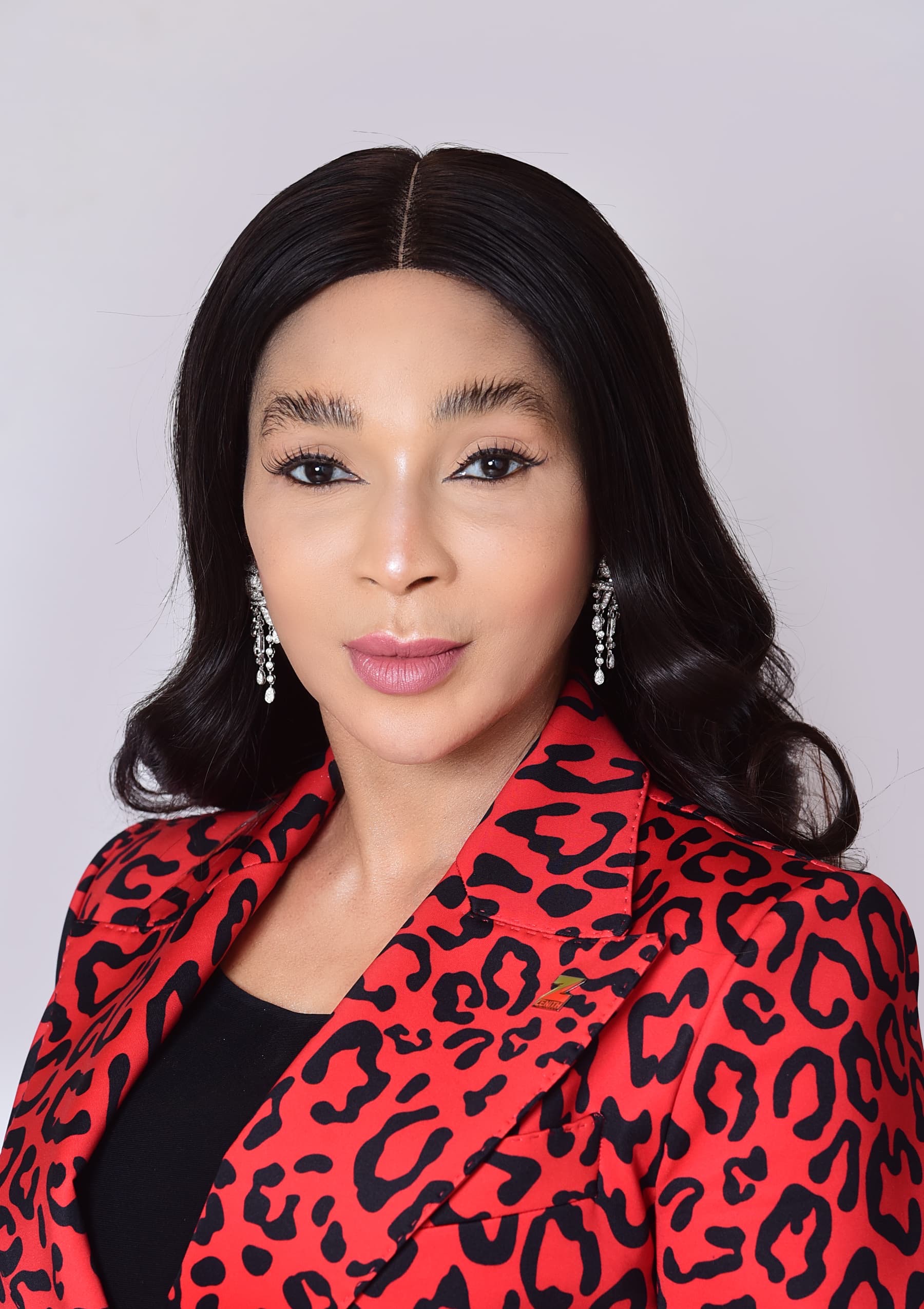
 brand2 weeks ago
brand2 weeks agoZENITHz BANK MAINTAINS SUPERLATIVE PERFORMANCE WITH PBT OF N1.3 TRILLION IN FULL YEAR 2024


